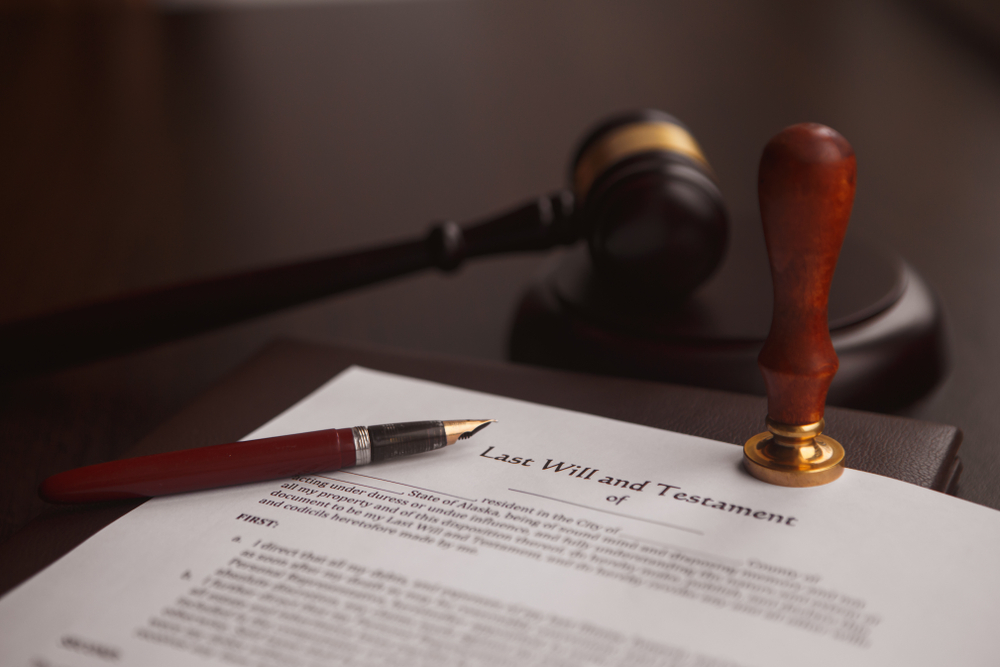Money typically stays in an estate account for months to a year. How long money has to stay in an estate account is based on factors such as the complexity of the estate, whether an estate tax return is required, and the time needed to resolve any claims made by creditors.
Factors That Impact How Long Money Stays in an Estate Account
Several factors, some of which the executor has control over and some that they do not, affect how long money stays in an estate account.
The Probate Process
The probate process takes an average of six to nine months but can take longer for more complex estates. Disputes among beneficiaries and creditors can extend the time it takes to probate a will.
The executor, or the person named in the will to oversee the estate and carry out the deceased’s wishes, will start the probate process. Here are the key steps in probating a will:
- Present the death certificate to the court: The executor, a family member, or the deceased’s estate attorney can file the death certificate with the probate court.
- File the deceased’s (testator) will: If the deceased had a will, most states require that the will be filed with the probate court within 30 days to three months of the testator’s death.
- The court validates the will: After the will has been filed with the probate court, it must be validated by verifying the document’s date, the testator’s signature, and the validity of the witnesses.
- The court appoints a representative to oversee the estate: Typically, the executor is named by the court to oversee the estate, unless they decline or the will is contested.
- Inventory the estate: The executor will create an inventory of all the testator’s property and accounts and determine their value. They will also identify any outstanding debts.
- Notify creditors and beneficiaries: The executor notifies the beneficiaries of their interest in the will. They also identify and inform any creditors. Some states require a public notice of the death and probate to allow unknown creditors to make a claim.
- Handle bills and debts: The executor will collect any money owed to the estate and review all outstanding bills. This may require careful planning if there is insufficient money in the estate to pay the bills. If not, the state will prioritize creditor claims.
- Distribute assets to the beneficiaries: Once all bills, taxes, and creditor claims have been paid, the executor can distribute the remaining assets to the rightful beneficiaries.
- Closing the estate: Once everything is settled, the executor may petition the court to close the estate.
Creditor Claims
How long it takes to notify creditors and process their claims will also impact how long money stays in an estate account. Creditors are entitled to their payment before the estate assets can be distributed to their beneficiaries.
Examples of potential creditors include the following:
- Credit card companies
- Funeral and burial service providers
- Lawyers, accountants, and other professionals
- Lenders
- Medical providers
- Tax collecting bodies
- The executor
- The government
The steps for notifying the creditors of a probated estate include:
- Notification: The executor will notify all known creditors. Some states also require a general public notification in a newspaper. This publication typically runs for a set period. It is intended to notify any creditors that the executor has not identified.
- Waiting periods: The time limit for creditors to submit their claims varies by state, but it is usually a few months. The executor must wait until this period expires before they can distribute assets to beneficiaries or close an estate.
- Reviewing claims: After the executor receives all potential claims on the estate, they review them for validity. Some claims may be disputed. The executor uses the estate’s checking account to pay creditor claims. They must keep a current and accurate record of their actions. If there are not enough liquid assets to pay the claims, the executor may need to sell real estate to raise money. If the estate cannot settle the claims, state law will determine the next steps.
Tax Requirements
Tax requirements also impact how long money stays in an estate account.
The executor of the estate will determine if the estate owes federal estate, property, and income taxes.
- Income taxes: The executor pays personal income taxes for the decedent. The date of death marks the end of the last year for the decedent to pay taxes, unless the estate continues to generate income after the decedent’s death.
- Estate taxes: If the value of the estate exceeds certain thresholds, estate taxes may be owed.
- Property taxes: The executor pays the property taxes on behalf of the decedent until the property is transferred to the heirs.
Paperwork, payments, audits, questions about taxes owed, or disputes about the amount owed can all affect how long money needs to stay in an estate account.
Legal Requirements
Depending on the jurisdiction, there may be legal requirements and rules that cover estate duration based on the estate size and assets.
Estate Settlement
Only after all the creditors and taxes have been paid and legal obligations have been met can the executor begin distributing the assets to the heirs.
Speak to a trusted advisor if you are the executor of an estate or have questions about how to create a comprehensive estate plan. Contact us and schedule a call with us at 855.631.3457 to learn more about how to protect those most important to you.








